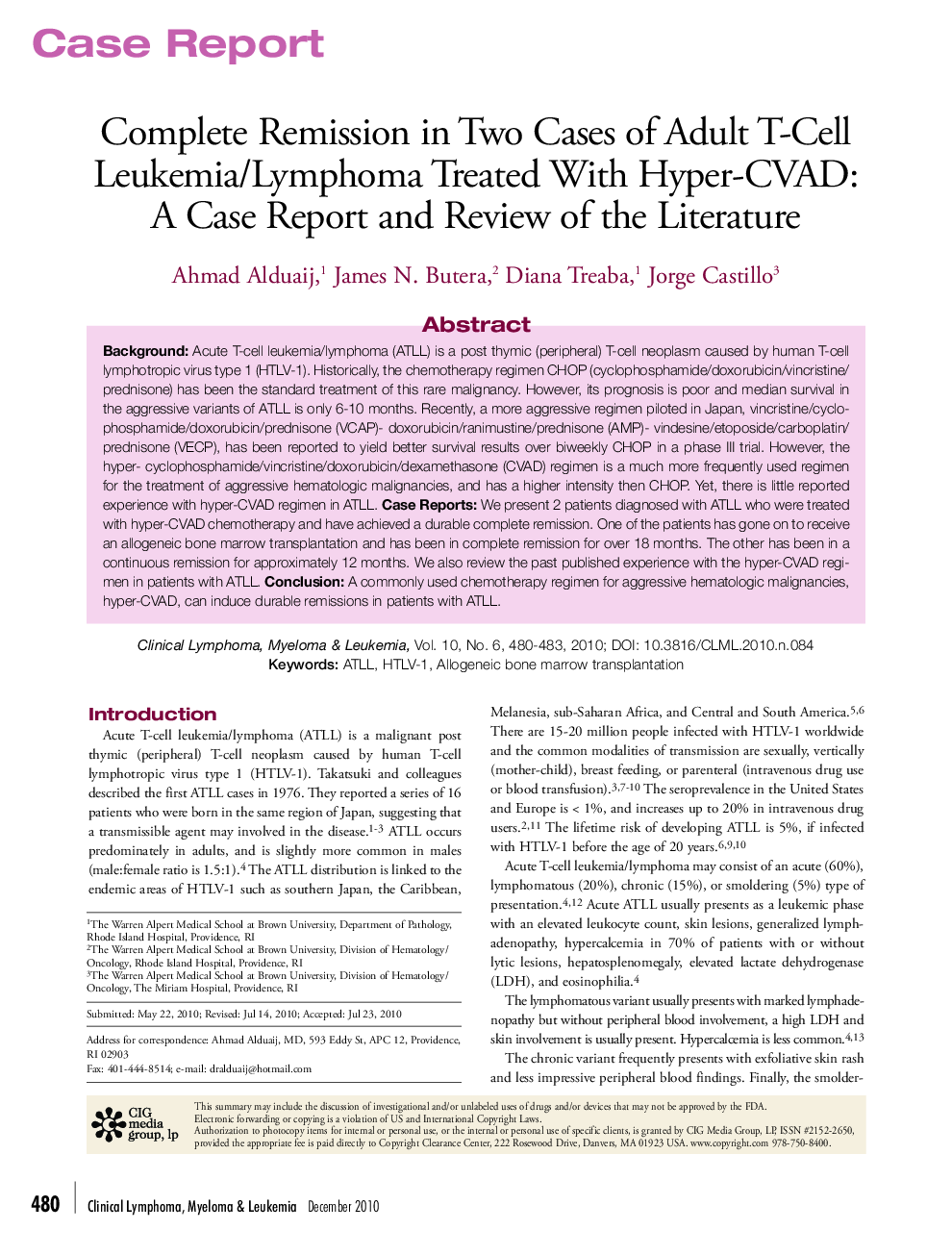| Article ID | Journal | Published Year | Pages | File Type |
|---|---|---|---|---|
| 2754760 | Clinical Lymphoma Myeloma and Leukemia | 2010 | 4 Pages |
BackgroundAcute T-cell leukemia/lymphoma (ATLL) is a post thymic (peripheral) T-cell neoplasm caused by human T-cell lymphotropic virus type 1 (HTLV-1). Historically, the chemotherapy regimen CHOP (cyclophosphamide/doxorubicin/vincristine/prednisone) has been the standard treatment of this rare malignancy. However, its prognosis is poor and median survival in the aggressive variants of ATLL is only 6-10 months. Recently, a more aggressive regimen piloted in Japan, vincristine/cyclophosphamide/doxorubicin/prednisone (VCAP)- doxorubicin/ranimustine/prednisone (AMP)- vindesine/etoposide/carboplatin/prednisone (VECP), has been reported to yield better survival results over biweekly CHOP in a phase III trial. However, the hyper- cyclophosphamide/vincristine/doxorubicin/dexamethasone (CVAD) regimen is a much more frequently used regimen for the treatment of aggressive hematologic malignancies, and has a higher intensity then CHOP. Yet, there is little reported experience with hyper-CVAD regimen in ATLL.Case ReportsWe present 2 patients diagnosed with ATLL who were treated with hyper-CVAD chemotherapy and have achieved a durable complete remission. One of the patients has gone on to receive an allogeneic bone marrow transplantation and has been in complete remission for over 18 months. The other has been in a continuous remission for approximately 12 months. We also review the past published experience with the hyper-CVAD regimen in patients with ATLL.ConclusionA commonly used chemotherapy regimen for aggressive hematologic malignancies, hyper-CVAD, can induce durable remissions in patients with ATLL.
